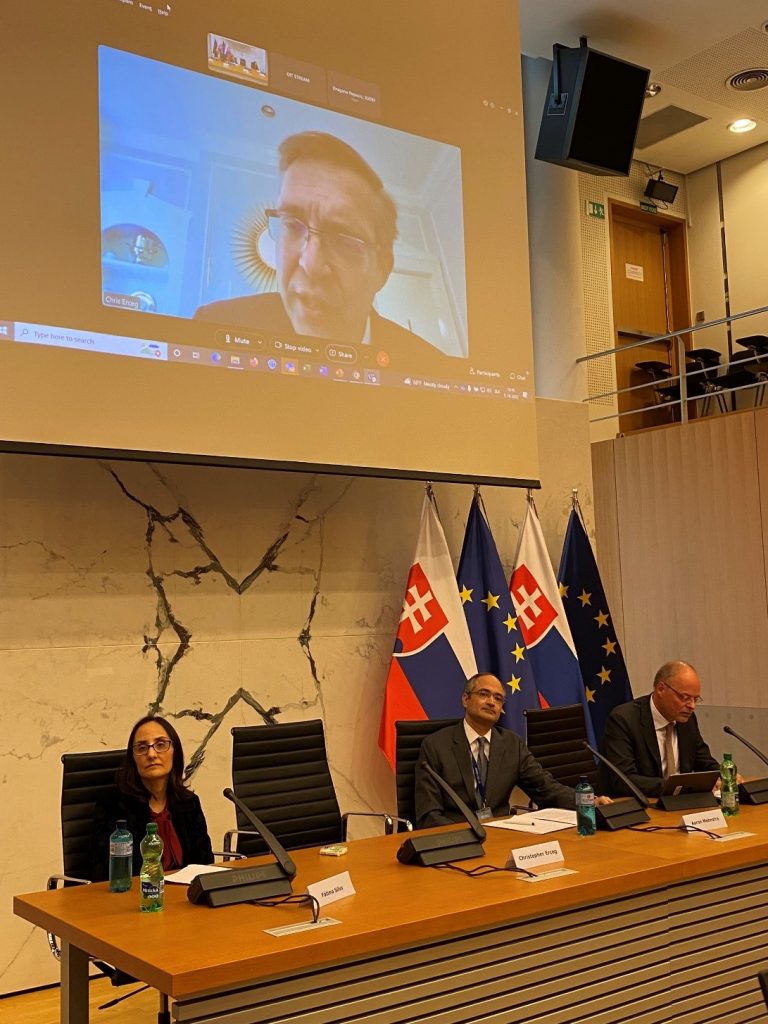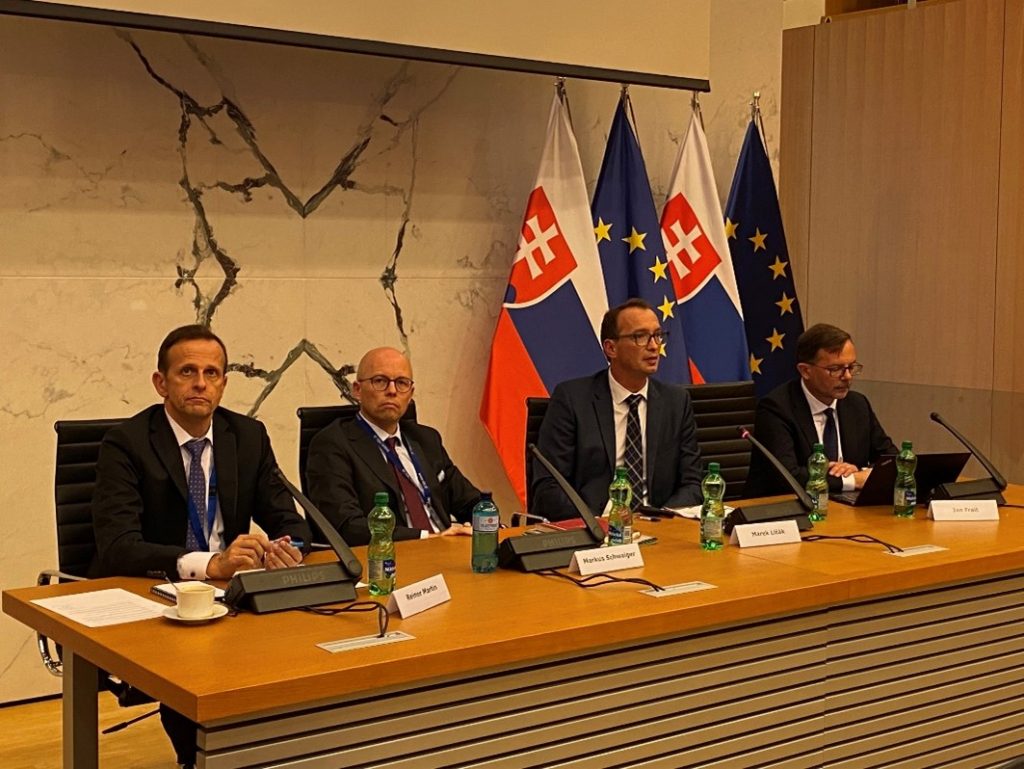-
NBS Tasks
Browse topics
- Monetary policy
- Financial market supervision
- Financial stability
- Banknotes and coins
- Payments
- Statistics
- Research
- Legislation
-
Publications
- Activity Report of the NBS Innovation Hub Annual Report Economic and Monetary Developments Financial Stability Report Investment Policy Statement of the National Bank of Slovakia Macroprudential Commentary Policy Briefs
- Report on the Activities of the Financial Market Supervision Unit Research Papers: Working and Occasional Papers (WP/OP) Statistical Bulletin Structural Challenges Other publications Sign up for your email notifications about publications
- About the Bank
- Media
- Frequently asked questions
-
For the public
Browse topics
- About the Bank
- Exchange rates and interest rates
- Banknotes and coins
- Payments
- Financial stability
- Financial market supervision
- Statistics
- Legislation
-
Publications
- Activity Report of the NBS Innovation Hub Annual Report Economic and Monetary Developments Financial Stability Report Macroprudential Commentary
- Report on the Activities of the Financial Market Supervision Unit Statistical Bulletin Other publications Sign up for your email notifications about publications
- Frequently asked questions
- Media
- Careers
- Contact
Macroprudential Policy and the End of the Zero-Interest-Rate Environment
The current environment of high inflation, tightening monetary policy, and severe macroeconomic uncertainty creates new challenges to macroprudential authorities throughout Europe and the world. Macroprudential policy is still a relatively new economic policy area, and this is practically the first time since macroprudential policy has become widely used that policy rates are on a clear upward trajectory. As a result, it is currently particularly challenging for macroprudential policy makers to assess the need for and the impact of macroprudential tools on the demand and supply of loans, on asset prices, credit risk and financial stability more generally.
To discuss the current challenges facing macroprudential policy makers, SUERF, together with the National Bank of Slovakia organized a workshop entitled “Macroprudential Policy and the End of the Zero-Interest-Rate Environment”. The aim of the workshop was to bring together the cross-country perspective of international organizations and recent country-specific experiences in dealing with this new environment for macroprudential policy making.
Speakers broadly agreed on the complementarity of price stability and financial stability and on the financial stability risks stemming from high and possibly rising inflation. Monetary policy tightening can also increase financial stability risks, although it may have also positive effects on banks, such as a rise in net interest income. On balance, speakers agreed that macroprudential policy still has an important role to play in safeguarding financial stability. A broad-based loosening of macroprudential policy, in line with what was happening in most countries at the start of the Covid Pandemic, was not seen as necessary or warranted. At the same time, speakers argued that it is important to revisit and possibly recalibrate the different objectives of macroprudential policies. While there may still be a need to increase banking sector resilience in some countries, further increases in asset price overvaluations have become less likely. In fact, we may rather see a decline in asset valuations, a development that also requires careful monitoring and possibly macroprudential interventions.
YouTube recording:
Photos:



